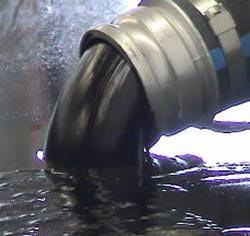
The years 2012, 2013 and 2014 were probably the best for the oil industry as crude oil price hit and surpassed the unprecedented $100 mark. It was dollar rain for Nigeria and other oil producing countries. Nigeria’s foreign earnings from her most treasurable export product increased in a manner similar to the days when a former head of state gleefully expressed that Nigeria’s problem was not money but how to spend it. A dive into how much Nigeria has earned from crude oil vis-à-vis the current realities of the country leaves one in nothing but a perplexed state. According to data from the Central Bank of Nigeria (CBN), Nigeria earned N77.348 trillion from oil and gas from 1999 to 2016. And between 2012 and 2016, the gross oil and gas earnings amount to N28.153 trillion. These figures on paper suggest the status of a wealthy nation with abundant social amenities, but the reality on ground is an exemplification of a paradox. The depressing irony is that the same country that earned this much in the past years went into recession in 2016 and was practically broke. We went borrowing from foreign creditors. Our nation simply went broke because crude oil price fell sharply from the glorious high of $100 per barrel.
It would have been excusable if our economic planners and leaders did not envisage the sharp fall in oil prices, but they did. They knew the international crude oil market was volatile and prices were prone to sharp fluctuation. This integral characteristic informed the institution of the excess crude account in the first instance, whichallowed the government to save the excess earnings above budget estimate from crude oil. Saving the excess earnings in the ECA was our way of preparing for the rainy day. But we are deleteriously endowed with a political class that is more interested in what they gain today than what they save for tomorrow. Saving for tomorrow requires vision, sacrifice and selflessness, which are the attributes many of our politicians lack. Hence it was easy for the governors to intimidate the former president into releasing the money that could have been saved for the future. Sadly, many of the governors, despite the rain of dollars, left office with outrageous debt. Owed salaries and pensions of serving and retired civil servants became the central news of many states. When the current administration assumed office, the president had to draw from what was left in ECA to bail out states owing salaries.
Dilapidated schools are still in abundance in many of the states with no effort to renovate or construct new ones. Yet the governors built new government houses, acquired luxurious properties and wasted money on white elephant projects that did not have any positive direct impact on the populace. At the federal level, we are still dealing with epileptic power supply and a huge infrastructural deficit across the totality of our infrastructural architecture. Ours is a nation that squanders earned money without recourse to what lies ahead. We know the right thing to do but will never do it. In essence, between the states and federal government in the last administration, Nigerian gained immensely from the crude oil price increase and we squander a significant part of it.
Now the past is being repeated, the unprecedented is happening again. No one expected that crude oil price would climb to over $75 as we are currently experiencing. The latest increase is likely to last for an extended period considering the possible prolonged status of the propellants. One of such is the recent announcement by President Donald Trump to pull the US out of the Iran nuclear deal.
The 2018 budget that is yet to be passed has a crude oil benchmark of $45 per barrel which means the country is already experiencing over $25 excess income on every barrel sold. Obviously we are relishing another round of dollar fall in Nigeria. But one wonders if our political class and economic planners possess the political will and discipline to save for the rainy day. This effortless income is already being flaunted as a political point by some elements, which is an unnecessary distraction. Pleasingly, the current minister of finance, Mrs. Kemi Adeosun recently assured the World Bank of prudential spending and saving, but we recollect that the former minister, Dr. Ngozi Okonjo-Iweala also gave the same assurance. And in fairness she was committed to saving for the future before the governors mounted pressure for the money to be shared. One can only hope that the current administration at the state and federal level would have learnt sufficient lessons from the former government and not repeat the same mistake. Nothing lasts forever; we should learn to seize our moments of bliss. Oil prices will not be high forever and our country should not always recede into recession every time oil prices fall. The rainy day will soon come to evaluate how well we manage today’s bliss.
